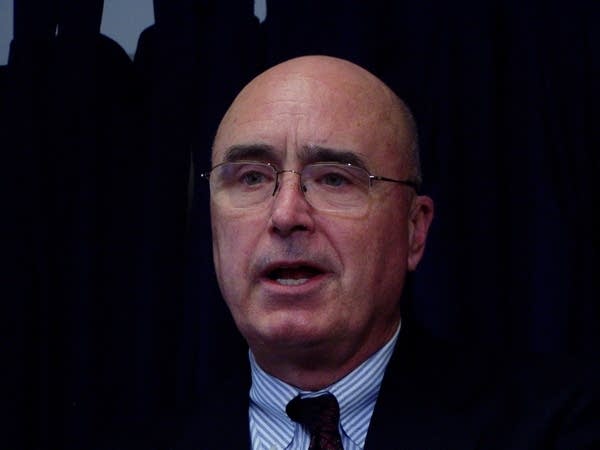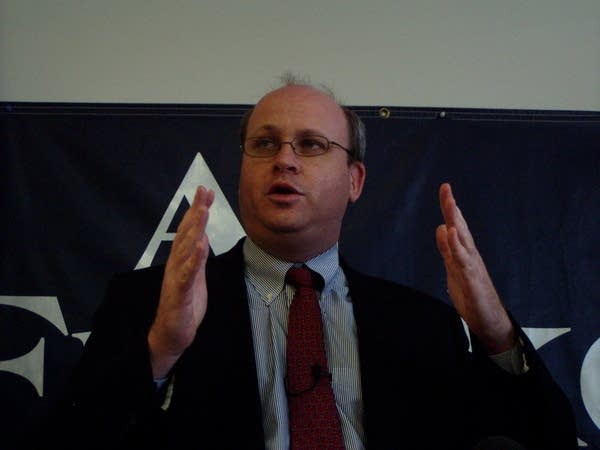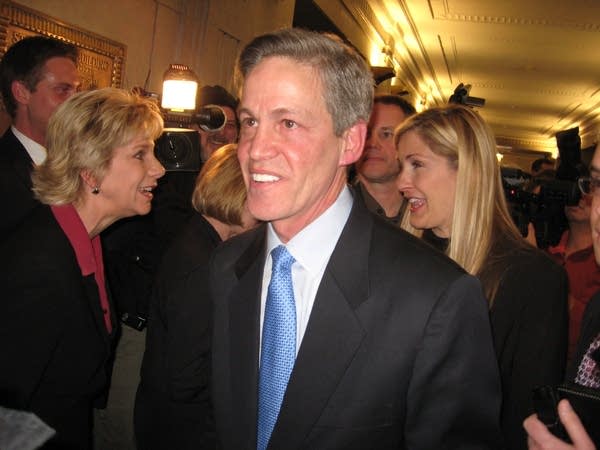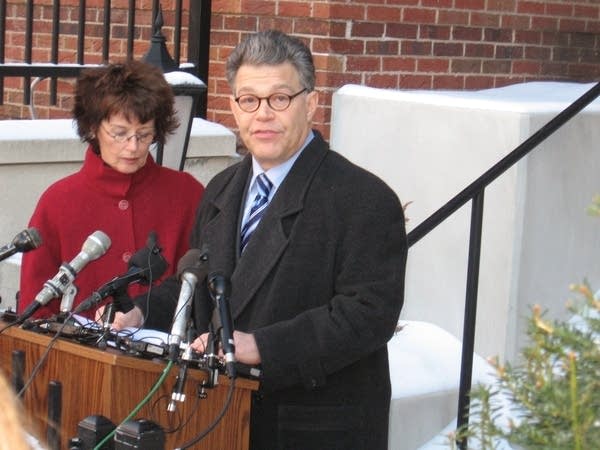Recount trial begins
Go Deeper.
Create an account or log in to save stories.
Like this?
Thanks for liking this story! We have added it to a list of your favorite stories.

After nearly two years of bitter campaigning and tens of millions of dollars spent on newspaper, radio, and TV ads, Minnesota's U.S. Senate race comes down to this -- a trial before three district judges of varying political pedigrees.
All three were appointed by governors from different parties -- Republican, Democrat, and Independent. All three come from different parts of the state.

Coleman says he has confidence in the process, and that the court will adequately deal with the issues.
"One is to make sure that nobody's ballot is counted twice, and the second is that all absentee ballots are counted using uniform standards," said Coleman. "If that's done, this thing could be resolved and it could be resolved soon. And that's my hope."
Turn Up Your Support
MPR News helps you turn down the noise and build shared understanding. Turn up your support for this public resource and keep trusted journalism accessible to all.
While the recount issues and legal actions are complex, the idea behind this case is pretty simple.
Coleman is behind by 225 votes, and and is looking for ways to eliminate votes from predominantly Franken areas, and expand the votes in his favor from other areas.

Just how many ballots the panel will reconsider is still up to the three judges. Coleman's attorneys would like to expand the list to 12,000.
Coleman is specifically challenging whether the recount properly included and counted legally cast votes in three major categories. They have to prove by a preponderance of the evidence -- that is, that it's more likely than not -- that: officials wrongly rejected absentee ballots; that they double-counted other ballots; and third, that 133 missing ballots from Minneapolis should not be counted.
Coleman's attorney Joe Friedberg says after opening statements, the case will get dull in a hurry. He says he'll put 400-page binders of rejected absentee ballots in front of the panel, Franken's attorneys, and a witness on the stand. And they'll go over them, ballot by ballot, for at least several days.
"It will be very boring," said Friedberg. "We've got to get all of those ballots in front of these three judges, so they can make an independent decision as to whether or not that envelope that holds the ballot should be opened and counted."

Coleman's attorneys will also argue that the State Canvassing Board erred in determining voter intent on challenged ballots, and that some voters who weren't eligible to vote did.
Daniel Lowenstein, professor of election law at UCLA, says there really are no surprises in Coleman raising the absentee ballots, double counting of ballots and missing Minneapolis ballots.
"He's raising the significant issues that he's rightfully raising, and those are there. And for the most part, the rest of it seems to be sort of wild, flailing around," said Lowenstein. "I think he will get a hearing on the first set of issues, and probably not on the second."
Both teams of attorneys include some local and national legal firepower.

In addition to Minneapolis criminal defense attorney Joe Friedberg, Coleman's legal bullpen includes Ben Ginsberg, one of former President George W. Bush's attorneys in the 2000 recount; former state Senator and assistant majority leader Fritz Knaak; and Tony Trimble, who represented Mark Kennedy in the congressional recount of 2000.
Franken's attorneys include former Minneapolis U.S. Attorney David Lillehaug, two Seattle attorneys, Kevin Hamilton and David Burman, who worked on Washington state's gubernatorial recount in 2004; and Marc Elias, who was general counsel for the Kerry-Edwards presidential campaign.
"Going into the trial, we're likely going to see the court narrow the issues that there'll be a manageable set of issues before the court," said Elias. "Then the Coleman campaign will have the opportunity to have their say, we'll have our say, and then we'll get a ruling from the judges."
Guy Charles, a visiting election law professor at Duke University, says one question is how aggressive the lawyers will be.
"They started off fairly aggressive on both sides," said Charles. "I think the court is beginning to assert its authority, and the question is are we going to see constant attempts by both sides to press an advantage as often and as quickly as they possibly can?"
Neither side would hazard a guess as to how long the trial would last, but it is expected to take at least three weeks. The loser of the contest will have the option of appealing to the Minnesota Supreme Court.
But even that may not be the end of the court battles. The Coleman campaign may file a challenge in federal court, based on equal protection claims that election officials didn't treat ballots equally.
Dan Lowenstein of UCLA says Coleman is justified in bringing the election contest in state court, but going to federal court would be stretching the case pretty far. Coleman said he's not ruling out any action.





